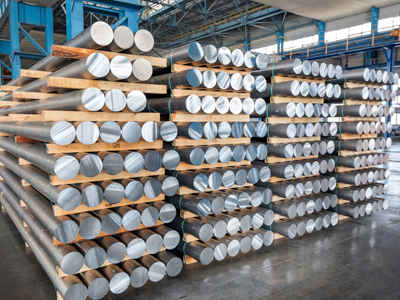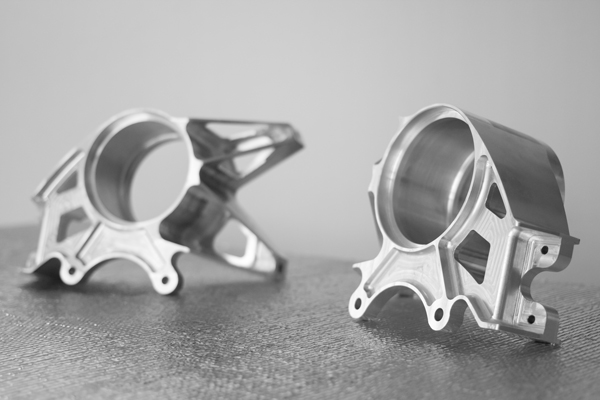Aluminum

As a silver-colored, lightweight, and non-magnetic metal, aluminum can be easily shaped into almost any geometry. As a versatile material, it is used in various industries, for example, thick plates of aluminum are used in armored vehicles and tanks or thin aluminum foils are used as packaging material. Aluminum is also used in the production of wires and cans.
Although pure aluminum is soft, and its strength is low, these features can be improved by adding little amounts of copper, magnesium, and zinc.
Commercial amounts of aluminum have been used in the industry since the early 1900s. In this regard, it is a relatively new industrial metal.
Features & Applications
Features
- Perfect chemical resistance and corrosion resistance
- High specific strength (strength-to-mass ratio)
- Good electric and heat conductivity
- High machinability
- Reflects light and heat
Applications
- Auto parts
- Cooking Utensils
- Aircraft parts
- Medical Devices
- Electronic Enclosures
- Handles & Knobs
- Optical Reflectors
- Lighting Fixtures
- Engine parts
Machining Options

Other Information
Advantages
Transportation Industry: As a light, strong, and easily machineable material, aluminum is a widely preferred material in transportation applications. It is an ideal material to be used in land vehicles, air crafts, rail vehicles, and vessels. Aluminum is also used to achieve fuel efficiency in automobiles and trucks. Since it is a lightweight material, it provides fuel savings and reduced emissions.
Construction Industry: Aluminum is a preferred material also in the construction industry since it is corrosion resistant and provides economic solutions. Aluminum products are not only used in new construction projects but also renovation works. Moreover, it is an ideal construction material in regions susceptible to earthquakes because of their advantages in terms of strength and lightweight. Also, it is widely used in lighting devices due to its high reflecting capacity.
Automotive Industry: In a traffic accident, the vehicle’s frame, which is usually made from aluminum alloys, absorbs most of the impact that the vehicle is exposed to.
Aerospace Industry: Aluminum alloys, which have high strength values, are used in the air vehicles to resist against extreme pressures and external stresses being exposed to at high altitude flies. Aluminum wafer panels used in the body of the aircraft does not allow thermal transfer between the air and inside of the plane. Moreover, aluminum or aluminum composite materials are used for most of the internal fittings of airplanes such as seats, overhead lockers, armrests, etc. because they are light. This reduces the fuel consumption and emission of the aircraft, as well as, enabling to increase the payload.
Packaging and Food Processing Industry: Since aluminum is a non-toxic material, it can be safely used in the kitchen. For instance, non-acidic food can be wrapped using aluminum foil or aluminum cookware can be safely used to cook food. Since it is a lightweight material, aluminum kitchenware is easy to handle, and it can be quickly heated compared to stainless steel and cast iron.
Power Transmission Lines: As a safe conductor, aluminum wires can be safely used in thin wiring works and electrical home appliances such as bulbs and communication cables. Also, aluminum wires are used in the high-voltage transmission and power distribution lines over long distances.
Manufactured Alloys / Grades
Please kindly click on below PDF document to see the manufactured grades.









